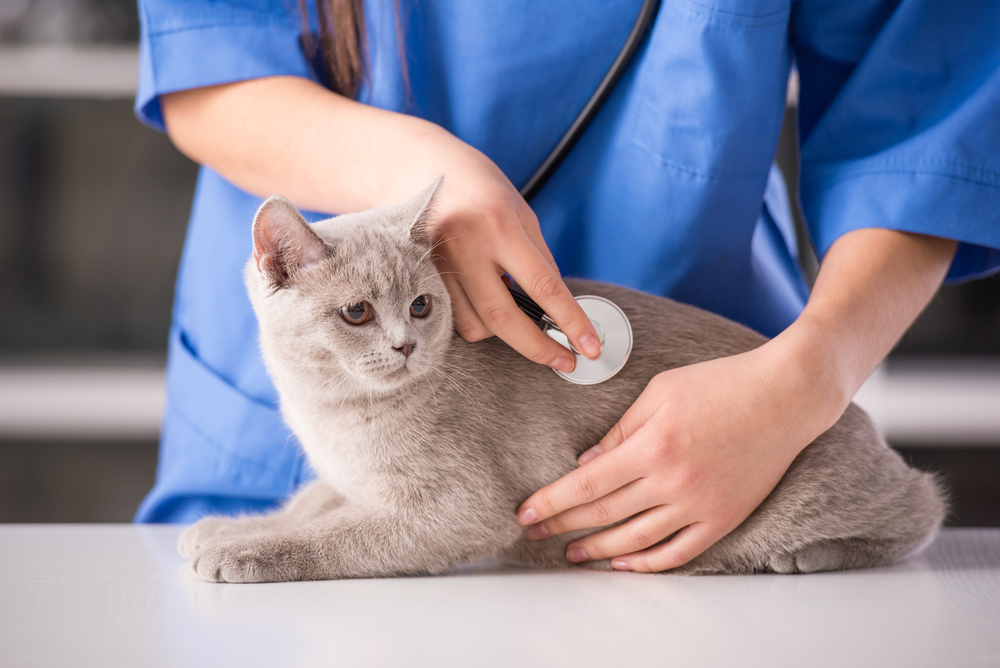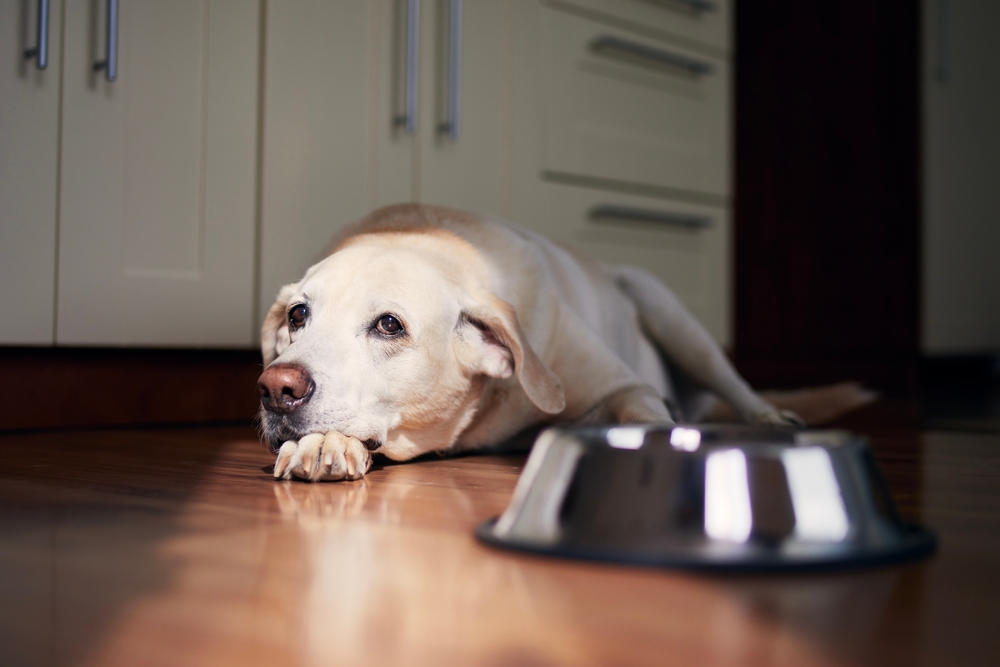Pets thrive on routine, and when they start to eat or drink more or less, this can indicate an underlying health problem. If your pet exhibits any habit or behavior change, you should schedule a visit with our Pioneer Animal Hospital team so we can perform a thorough checkup and diagnostic testing to uncover your pet’s problem. While a primary behavior problem could explain the issue, a medical problem should always be ruled out first. Learn the eight most common reasons why your pet’s eating or drinking habits may change.
#1: Cushing’s syndrome in pets
Cushing’s syndrome is a hormonal condition that usually results when the adrenal glands produce too much cortisol (i.e., stress hormone) or from other adrenal hormone excesses. Common in older dogs, this condition causes increased appetite, drinking, and urination, along with hair loss, a pot-bellied appearance, high blood pressure, weight gain, and frequent infections. Causes include a pituitary gland tumor, or adrenal gland tumor or overgrowth. Cushing’s syndrome treatment most often includes medications to suppress excess hormones and control blood pressure.
#2: Diabetes in pets
A lack of pancreatic insulin or insensitivity to insulin’s functions causes diabetes, which leads to excess sugar circulating in the blood, because body tissues and cells cannot use the sugar molecules for energy. Dogs and cats can develop diabetes at any age, and their signs include increased drinking, urination, and hunger, and significant weight loss. Diabetes treatments include a carbohydrate-restricted diet, insulin injections, and frequent glucose monitoring.
#3: Thyroid disease in pets
The thyroid gland influences metabolism. Pets with low thyroid hormone levels (i.e., hypothyroidism)—usually dogs—have a decreased appetite. Pets with high thyroid hormone levels (i.e., hyperthyroidism)—usually cats—have a ravenous appetite. Pets who have thyroid disease often experience changes in weight, energy level, heart function, blood pressure, and temperature regulation. Treatment for hypothyroidism in dogs includes daily hormone replacement therapy. Treatment for hyperthyroidism in cats includes radioactive iodine therapy, daily medication, or a special diet.
#4: Gastrointestinal problems in pets
A pet who isn’t feeling well because of acute or chronic gastrointestinal (GI) problems may stop eating, drool, vomit, hunch their back to guard their belly, or have diarrhea. Causes include foreign body ingestion, infection, dietary indiscretion, inflammatory conditions, food allergy, or GI tract tumors. Treatment is aimed at finding and correcting the underlying cause, which can be accomplished through the administration of a special diet, antibiotics, probiotics, supplements, anti-inflammatories, or immune system modulators. Your veterinarian may also recommend surgery or endoscopy.
#5: Oral pain in pets
Dental disease is dogs’ and cats’ most common medical issue, affecting nearly all pets by age 3. Severe, long-standing periodontal disease or acutely fractured or infected teeth are painful, causing your pet to eat and chew less. They may show a preference for softer foods, or develop a complete aversion to eating. Treatment requires a thorough professional dental cleaning, and may include the extraction of painful teeth.
#6: Kidney disease in pets
Kidney disease is common in aging pets, and changes in urine concentration cause them to urinate more frequently and drink more water to compensate. An affected pet may also feel nauseated as toxins build up in their blood. In addition, they may eat less, lose weight, or develop high blood pressure. During your pet’s annual wellness exam, your veterinarian can detect kidney disease at an early stage through blood and urine testing. Kidney disease treatment is most effective if started before your pet exhibits disease signs. Treatments include special diets, supplements, subcutaneous fluid administration, and medications to counteract secondary problems, such as urine protein loss or high blood pressure.
#7: Other diseases in pets
Many other chronic or acute diseases can make pets feel unwell or experience pain, which may cause them to eat or drink less. Heart disease, arthritis, anemia, urinary tract infections, ear infections, and cancer are possible culprits, but nearly anything that makes your pet sick can cause a temporary appetite decrease.
#8: Behavior issues in pets
Some pets’ eating or drinking habits change as they age—having no discernible underlying cause. Dementia or senility may play a role, along with stress or household changes. Pets may also lose their appetite if they are grieving a loss.

How your veterinarian will assess your pet’s eating or drinking changes
To determine the underlying cause of your pet’s behavior changes, our Pioneer Animal Hospital team will perform a thorough physical examination, including a weight and body condition assessment. Other tests will likely be required to diagnose your pet’s condition, and we may perform them over several visits. Testing may include:
- Blood chemistry and complete blood count (CBC)
- Urinalysis
- Adrenal function tests
- Abdominal and/or chest X-ray
- Abdominal ultrasound
Any change in your pet’s behavior warrants a medical evaluation, including changes in their eating or drinking habits. If you have questions regarding your pet’s behavior or health, schedule a visit with our Pioneer Animal Hospital team.

